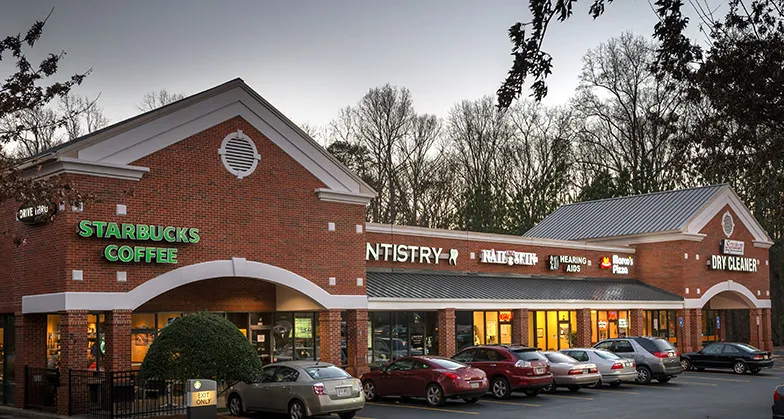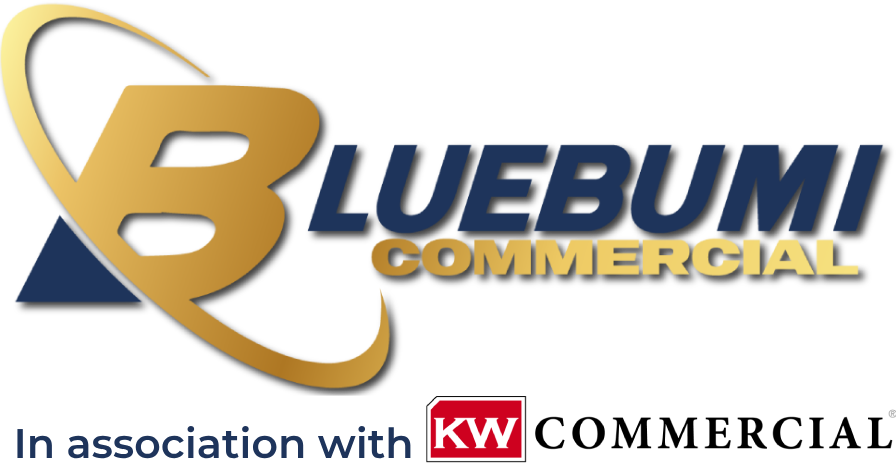
Atlanta Retail Market 2025: Trends, Sales & Investment Opportunities
Atlanta’s retail market has consistently ranked among the strongest in the nation, and 2025 is proving to be no different. With steady population growth, a thriving economy, and a retail landscape that spans everything from luxury urban centers to suburban neighborhood plazas, Atlanta is proving itself as a premier destination for investors.
While some national markets are slowing under economic pressure, Atlanta’s retail sector has shown resilience, adaptability, and continued growth. For investors, developers, and property owners, the opportunities here are as diverse as the city itself.
Why Atlanta is on Every Investor’s Radar
Atlanta is uniquely positioned in the Southeast as a hub for commerce, logistics, and culture. Its diverse economy, coupled with a rising population, makes it a consistent outperformer when it comes to retail demand. Here are the key reasons investors continue to flock to the city:
Population Growth Driving Demand
Atlanta remains one of the fastest-growing metro areas in the nation. A steady inflow of new residents creates constant demand for retail services across both suburban and urban submarkets.Sun Belt Advantage
The Sun Belt has become a hotspot for national investors thanks to its favorable demographics and pro-business climate. Atlanta is leading that charge with a growing base of affluent consumers and a strategic position in the region.
Sales Strength
In 2024, Atlanta’s retail property sales outpaced pre-pandemic averages from 2015–2019. Even in a high-interest-rate environment, investors are betting big on the metro’s long-term fundamentals.
Sales & Investment Highlights
The numbers speak for themselves. Atlanta continues to see healthy transaction volumes and competitive pricing:
12-Month Sales Volume: $2.9 billion
Average Sale Price per Square Foot (SF): $212
Market Sale Price per SF: $224
Average Cap Rate (YTD 2025): 7.0%
Average Sale Price: $2.7 million
One standout figure is the 4.1% year-over-year increase in average price per SF, a clear indicator that investors remain confident despite macroeconomic uncertainty. While overall sales volume hasn’t yet returned to the peak of 2022, Atlanta is still outperforming most national benchmarks.

Recent Notable Transactions
Several headline-making deals over the past year have reinforced Atlanta’s position as a market of choice for both national and local buyers:
Cobb Place Center (Kennesaw/NW Cobb) – Sold in December 2024 for $64 million ($190/SF). With 99% occupancy and an average rent of $24/SF, this retail node is one of the busiest in Georgia. The property traded at an 8% cap rate, making it an attractive high-cash-flow asset.
Kedron Village Shopping Center (Fayette/Peachtree) – Acquired by The Georgetown Company for $63 million ($250/SF). Anchored by Kroger and boasting 95% occupancy, this deal highlights the ongoing demand for grocery-anchored centers, which are considered among the safest bets in retail.
Mall West End Redevelopment (SW Atlanta) – Purchased for $29 million ($164/SF) with a massive $450 million redevelopment plan. This project will transform the aging mall into a mixed-use hub with retail, residential, and community amenities—a prime example of value-add investment opportunities in Atlanta.
Plaza on Ponce & Morningside Village (Urban Atlanta) – Acquired by 26th Street Partners for $67.5 million ($700/SF). These trendy centers reflect strong demand for walkable, urban retail locations that cater to Atlanta’s growing young professional base.
These transactions show the diversity of Atlanta’s retail landscape—from suburban power centers to urban boutique properties—giving investors multiple paths to success.
Cap Rate Insights
Cap rates in Atlanta remain relatively stable, with only minor fluctuations between property types:
Malls – 5.8% cap rate, reflecting their premium status when well-located and high-performing.
Power Centers – 6.5% cap rate, showing consistent investor interest.
Neighborhood Centers – 7.1% cap rate, right at the market average.
Strip Centers – 7.7% cap rate, offering higher yields for investors willing to take on slightly more risk.
General Retail – 6.9% cap rate, showcasing broad appeal and balanced performance.

Overall, Atlanta’s cap rates demonstrate both competitive returns and market stability, a rare combination in today’s real estate environment
Investor Trends
Who’s buying in Atlanta? The answer underscores the city’s national and global appeal:
Institutional Investors – Accounted for 56% of recent sales volume.
Private Buyers – 15% of volume, often seeking smaller centers or value-add deals.
National Buyers – Dominated at 67% of sales volume.
Local Buyers – Still strong, representing 31% of activity.
Particularly popular are grocery-anchored centers and suburban retail nodes. These assets offer stable cash flows and tenant security, making them especially attractive in a higher-interest-rate environment.
Challenges Facing the Market
No market is without its headwinds, and Atlanta is no exception:
Interest Rates – Elevated rates have slowed transaction volume compared to the 2022 peak.
Rent Growth – While still above the national average, annual rent growth is trending downward and projected to level at around 2% by mid-2025.
Federal Policy Uncertainty – Investor sentiment remains cautious as monetary policy shifts could affect lending conditions.
Despite these challenges, Atlanta has weathered macroeconomic pressures better than many other metros.
Opportunities Ahead
Where some see challenges, savvy investors see opportunity. Atlanta offers several avenues for long-term growth:
Redevelopment Potential – Projects like the Mall West End transformation highlight how older properties can be repositioned into thriving mixed-use destinations.
Urban Retail Growth – Proximity to dense populations and transit makes infill urban properties highly desirable.
Grocery-Anchored Security – As consumers continue to prioritize essentials, grocery-anchored centers remain the gold standard for retail stability.
Looking ahead, limited new development means supply will remain tight—further strengthening demand for well-located assets.
Future Outlook
The outlook for Atlanta retail is clear: growth, stability, and opportunity.
Population Trends – Continued migration to Atlanta will fuel consumer demand.
Sales Volumes – Expected to remain healthy, particularly for premium assets.
Cap Rates – Likely to stay competitive, especially in prime submarkets.
Investor Demand – Both national and local players will keep Atlanta high on their acquisition lists.
With resilience and adaptability as defining traits, Atlanta’s retail market is well-positioned to remain a top destination for investors in the years ahead.
Final Takeaway
Atlanta’s retail sector isn’t just surviving—it’s thriving. With sales volumes above pre-pandemic averages, stable cap rates, and a wide range of opportunities across submarkets, the city stands as one of the most compelling retail markets in the nation.
Whether you’re looking for a suburban grocery-anchored center, a high-profile urban redevelopment, or a neighborhood strip center, Atlanta has options that align with nearly every investment strategy.

